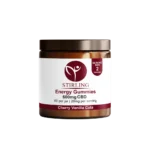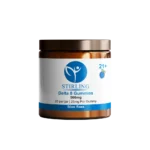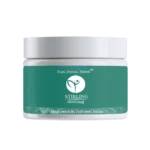THCA vs THC: What Makes Them Different from Each Other?
Chemical Structure
The key difference between these two cannabinoids is that THCA has one extra carboxylic acid group attached to it. This chemical consists of one carbon, two oxygen atoms, and one hydrogen atom.
When a raw cannabis plant undergoes decarboxylation through time, exposure to heat, or aging, that carboxyl group breaks off from the chemical chain in THCA, converting it from its acid form into the more well-known THC compound.
Looking at the two-dimensional line drawings of THCA vs. THC, we clearly see THC has a shortened “tail” on its structure, having lost the COOH group during decarboxylation to become the psychoactive compound we recognize as THC. It is this key structural change from acid to neutral form that gives THC the ability to bind with CB1 receptors in the body and brain, producing heightened sensory effects recreational and medical cannabis users seek out. (We need images showing THCA and THC here.)
So, in summary, THCA contains an extra carboxyl group that, once removed, allows it to transform both in chemical structure and psychoactive function into Delta-9 THC through decarboxylation.
Psychoactive Effects
The key distinction between tetrahydrocannabinolic acid (THCA) and its decarboxylated form, tetrahydrocannabinol (THC), lies in their radically different psychoactive effects.
THC is the primary compound responsible for the “high” felt by recreational and medical cannabis users, inducing altered mood, euphoria, relaxation, increased appetite, and reduced pain perception through activation of CB1 receptors throughout the brain.
THCA, in contrast, is a non-psychoactive cannabinoid in its raw form. This plant compound does not cause any mood-altering phenomena or perceptual changes. Due to THCA’s additional carboxyl group still being attached, it cannot bind effectively with major cannabinoid receptors.
However, when smoked THCA converts to THC which will cause a high impairment, early research does indicate potential health benefits such as anti-swelling and brain-protective properties.
Ultimately, it is THC that produces the profound yet often desirable effects on the human sensory system and perception of the external world, while non-decarboxylated THCA provides no high and maintains strictly non-intoxicating medicinal properties.
The differences in psychoactivity play an essential role in determining appropriate applications and user expectations between these two important cannabis compounds.
Body Effects
The body effects caused by THC vs THCA vary significantly due to whether or not these cannabinoid compounds bind to CB1 receptors throughout the body.
THC’s interaction with the mentioned major cannabinoid receptors induces the renowned “bliss” feeling, triggering full-body euphoria, muscle relaxation, heightened sensory perception, increased heart rate, improved appetite, reduced nausea, and pain alleviation.
These wide-ranging impacts of THC molecules on the central nervous system are what the “high” so desirable for recreational users and key side effects beneficial for medical cannabis patients.
In comparison, without decarboxylation, THCA does not bind to CB1 receptors, meaning it produces no pronounced bodily effects like alterations in mood, appetite, muscle control, or perception of pain and the other senses.
However, emerging research indicates THCA still influences body function through different biochemical channels – exhibiting potent anti-swelling effects valuable in managing pain and immune conditions like joint pain without causing impairment. While THCA may lack THC’s broad psychoactive body effects, its potential therapeutic value reinforces that cannabis plant compounds have many complex interactions yet waiting to be understood by science.
Legal Status
The legal status of THCA diverges from that of THC. This is primarily due to THC’s intoxicating effects against THCA’s lack of psychoactivity.
THC remains a Schedule I controlled substance on the federal level in the United States, tightly restricted due to its high potential for abuse and lack of accepted medical value in the government’s view.
THCA, on the other hand, receives no direct mention in the Controlled Substances Act, leaving its legality in a gray area.
As the non-psychoactive precursor to the illicit THC, THCA from hemp sources containing less than 0.3 Delta 9 THC is technically legal per federal law. However, some states have begun expressly prohibiting or limiting THCA possession and sale regardless of source. While federal agencies take no enforcement action against THCA, its legality remains questionable.
Presence in Cannabis Flowers
The cannabis plant produces many cannabinoids, one of which is THCA. The levels of THCA compared to THC present in cannabis flowers depend greatly on whether the plant matter is fresh/raw or has undergone decarboxylation through drying and curing processes.
In freshly harvested, living cannabis buds, THCA dominates as the main cannabinoid compound, often constituting 20-30% or more of total weight. Minimal THC exists naturally in raw flowers, though certain strains have been selectively bred to produce more.
As flowers get dried and cured into the final cannabis products most consumers are familiar with, exposure to air, heat, and time causes THCA molecules to shed their carboxyl group, converting enzymatically into THC.
So, while a freshly cut bud off the cannabis plant would test at nearly 30% THCA and under 1% THC, that same bud, properly aged and dried, may test at over 25% THC after losing most of its original THCA content through decarboxylation into its active THC form.
Can You Consume THC and THCA?
Sublingual Products
When it comes to ingesting THCA vs THC oils, the most common method is sublingual administration. This approach involves placing drops under the tongue to allow absorption into the bloodstream.
This sublingual dosing provides a quick onset of effects. By sublingual administration, one may experience consistent dosing levels compared to other edible preparations that undergo digestive processes.
Consuming THCA oil sublingually retains its non-psychoactive, acidic form rather than converting into intoxicating THC via exposure to heat or prolonged time in the gut. This quality of THCA allows users to access potential therapeutic benefits without impairment.
In contrast, THC oil placed under the tongue will rapidly convey the sensory-enhancing properties THC is prized for recreationally speaking.
So, depending on one’s aim and cannabis restrictions in their state, either THCA oil or THC oil can be conveniently self-administered sublingually for rapid results.
Topical Products
In addition to the sublingual delivery method, both THC and THCA can be formulated into topical preparations such as lotions, balms, and creams. A topical product means the cannabinoids are applied directly to the skin.
Many cannabis consumers prefer topical use for localized relief of muscle soreness, joint pain, and other skin conditions without using systemic absorption into the bloodstream.
Because skin application avoids decarboxylation exposure in the digestive system, THCA remains non-psychoactive when applied topically. Likewise, THC absorbs only minimally through the skin into circulation, avoiding much of the intoxication or impairment felt from smoking or ingesting this cannabinoid.
Smokable Products
The most popular way to enjoy THC and THCA is inhalation through vaporization and smoking methods. Lighting dried cannabis flowers on fire or using concentrated cannabis extracts in vape pens provides a quick onset of effects within minutes. The explanation for this quick manifestation of psychoactive effects is that the cannabinoids quickly enter the bloodstream via absorption through the lung tissues.
However, combustion from smoking may produce harsh smoke and known carcinogens, causing irritation to the respiratory system over time.
Vaporization avoids this problem by heating cannabis plant extracts enough to evaporate THCA and THC, converting them to inhalable vapor while avoiding true burning.
One key thing to understand when inhaling THCA from raw cannabis products is that the heat applied converts THCA into psychoactive THC through decarboxylation very quickly. This means smoking or vaping THCA flower, hash, or concentrates will still produce the intoxicating effects users seek from THC.
Edible Products
Ingesting THC and THCA through edibles, beverages, capsules, and tinctures is another popular option for cannabis users.
While edibles take 30-90 minutes to absorb through the digestive system before hitting peak levels in the bloodstream, results typically persist much longer – for 4-12 hours usually. This makes edibles alluring for maintaining consistent cannabinoid levels without frequent dosing, but the delayed onset can lead consumers to over-ingest while waiting for effects.
What is THC?
Tetrahydrocannabinol, commonly referred to by its abbreviation THC, is the main psychoactive compound derived from the cannabis plant. It is responsible for producing heightened sensory effects which we normally call “high.”
When consumed through methods like smoking, vaping, edibles, or tinctures, THC mimics the body’s own endogenous cannabinoids. It is able to bind with cannabinoid receptors in the brain and central nervous system.
This interaction allows it to change normal communication pathways. As an outcome, cannabis users experience the famous high (or altered perception of time) associated with marijuana use.
But when used responsibly, THC provides enjoyable and even therapeutic effects to recreational and medical users alike.
What is THCA?
The full meaning of THCA is tetrahydrocannabinolic acid. It is a non-intoxicating compound abundantly found in raw cannabis plants. However, when smokes THCA becomes THC and will affect the brain and get you high.
Unlike THC, THCA contains an additional carboxyl group (COOH) connected to its chemical chain. This changes the cannabinoid’s molecular structure. The additional molecule prevents THC from binding with cannabinoid receptors in the body and brain.
When you heat up cannabis buds, leaves, or extracts by drying them, a process called decarboxylation happens. This process gets rid of a specific group in the cannabis compound and turns THCA into active THC.
THC and Research
THC and Pain Relief
Pain that lasts for a long time diminishes one’s quality of life. This may include different types of pain that stem from various medical conditions. Emerging research studies discovered that THC may provide relief from recurring pain.
Scientists think THC works by binding to natural cannabinoid receptors in the body that are part of the endocannabinoid system. This system is involved in pain signals and other processes. When THC activates these receptors, it may reduce the intensity and perception of chronic pain that patients experience.
More studies are still needed to confirm, but using THC products like certain oils, edibles, or pills shows promise in helping people find daily relief from sources of constant pain.
THC and Appetite
A well-known effect of consuming cannabis is experiencing the “munchies” effect. This is the feeling wherein the user feels very hungry and wants to eat a lot. This happens because THC interacts with parts of the brain that control hunger signals.
While munchies might not always be fun, this appetite-boosting effect could actually help some individuals who have lost the desire to eat.
Certain illnesses and medical treatments can leave people with poor appetite. Such a condition causes weight loss and poor nutrition.
Early clinical research shows that THC’s ability to make people hungry may help increase appetite and calorie intake for such patients. By stimulating the desire to eat, THC can support patients in eating more regular, nutritious meals.
THC and Sleep
Getting good sleep is important for health. Some early studies suggest that THC could act as a sleep aid.
Because THC can interact with brain receptors that influence body relaxation and stress levels, by lessening the stress levels and relaxing tired muscles, THC may help some people fall asleep more easily at night.
A small study found that a dose of THC before bed helped reduce the time it took people to fall asleep. And they reported better sleep quality compared to a placebo. THC also appeared to improve breathing during sleep in those with breathing impairments.
THC and Relaxation
Feeling down? Some early research found that appropriate doses of THC can improve sadness and irritability. Thus, THC may help some people become more relaxed.
A few small studies found people reported improved mood and less distress over several weeks when taking regular THC doses under medical supervision. The right amount helped buffer emotional stress.
Though more research is still needed, using THC as part of a mental health plan shows initial promise for low mood.
THCA and Research
THCA and Healthy Weight
Excess weight and obesity take a major toll on our bodies over time. Certain unhealthy medical conditions may start to develop if overweight is not addressed. An interesting study in 2020 found that THCA may help prevent this health issue.
Researchers tested the effects of THCA on a test subject consuming very fatty diets to mimic obesity. What they discovered was that the test subjects getting regular doses of THCA didn’t become diabetic or struggle with liver trouble nearly as much as those without.
Potential Anti-Swelling Effects
Ongoing redness, swelling, and tenderness in the body lead to general discomfort. Things such as muscle pain or even joint discomfort may cause the mentioned symptoms.
Early lab research shows promise that THCA, the raw form of THC from marijuana, may actually lower some of these discomforts. Tests show THCA can calm overactive immune responses and reduce swelling pathways.
While human trials are still required, THCA demonstrates the potential to provide certain therapeutic benefits related to intense soreness and irritation issues.
Potential Brain-Protective Effects
Our brains control everything we do. Losing brain cells over time leads to memory loss and confusion. However, some interesting research shows that THCA, a precursor cannabinoid, may actually offer some neuroprotective properties.
Specific tests have been done, showing that regular doses of THCA could prevent brain cell damage and death. Those consuming THCA for just a few weeks had much better thinking ability and less loss of brain function compared to those who didn’t get the treatment.
Researchers became convinced that THCA can strengthen brain channels that normally decline with age. The cannabinoid with cannabinoid acid seems to shield delicate nerve pathways from wearing down over time.
The Moment of Truth: THCA or THC
Deciding between THCA vs THC depends greatly on one’s personal body chemistry and wellness goals.
THC, the famous cannabinoid of them all, produces the classic cannabis “high” as it interacts with specific receptors in the brain and body. This time-altering effect provides recreational and therapeutic benefits such as relaxation, pain relief, and improved sleep. However, there are certain side effects that accompany THC usage – lack of coordination, dry mouth, and red eyes.
In contrast, THCA does not produce psychoactive effects. It only indirectly activates cannabinoid receptors. So while it does not create a mental “high,” THCA still reduces swelling, protects brain cells, and improves appetite. THC generates a vibrant but unpredictable experience that some find very rewarding.
You should not also forget that there are more research studies conducted on THC, meaning many scientists better understand it. THCA may still be considered a new player, and how it really works inside the body is still unclear.
In summary – those seeking to enrich activities with a euphoric mood boost may choose THC’s recreational and therapeutic capacities. This is recommended once the proper personal dosage is determined.
THCA’s stability and unique actions could prove the wiser choice for others interested solely in non-intoxicating wellness advantages.
What to look for when buying THC and THCA products?
Since many cannabis and hemp-derived cannabinoids are not yet FDA-regulated, quality and safety can vary greatly from one manufacturer to another. There are also several methods used to extract THC and THCA, and other cannabinoids that could produce unsafe extracts. Thus, it’s important to closely evaluate any THCA or THC products you are considering purchasing.
No idea what to look for? Do not worry because we compiled those crucial factors that you have to consider before buying THCA and THC products:
Source and Testing from Organic Cannabis Plant
Safe and high-quality THCA and THC products are sourced from USA-grown cannabis plants. They have also undergone third-party testing from an independent lab not associated with the brand. This practice ensures accurate levels of cannabinoids and verifies the product is free from contaminants.
Ingredients
Here, you should keep an eye on all-natural and organic components. Stray away from products that have additives and artificial ingredients.
THC Content
Check the labeled percentage of THC to determine the potency level of a product. Also, confirm the source is reputable and lab-tested for precise THC levels to avoid taking too much.
THCA Content
When buying standalone THCA products like isolates or tinctures, verify the level of THCA purity. Raw THCA crystalline should test above 95% purity. THCA oils will contain some THC due to plant decarboxylation.
Sustainability and Ethics
Purchase THCA and THC brands that source from cruelty-free, sustainable cannabis farms. By so doing, you are guaranteed to buy ethical and environmentally-conscious products.
Packaging and Storage
Properly stored THCA/THC should come in opaque, air-tight containers to preserve potency. Look for brands using such containers plus chilled shipping methods for items like raw THCA crystalline.
Customer Reviews
In addition to evaluating lab testing, quality ingredients, and ethical sourcing, taking the time to read customer reviews is another important factor. This feedback could provide further insight into actual product experiences. Remember, independent consumer perspectives help paint a truthful, transparent picture of how formulations and dosing work beyond the marketing claims.
Frequently Asked Questions
How is THCA converted to THC?
THCA transforms into THC through a chemical reaction called decarboxylation. This is activated by heat or aging in the cannabis plant. Initially, when cannabis is harvested, it has THCA with minimal THC content.
Decarboxylation happens when the cannabis plant is exposed to heat (e.g., smoking, baking, or vaping). During this process, the THCA molecule loses a carboxyl group, turning it into THC. This activation enhances the psychoactive properties of THCA.
Is THCA legal?
THCA is legal in most states and countries. This treatment is explained by the fact that THCA does not produce psychoactive effects typically related to cannabis usage. THCA is also almost legal if it is derived from hemp plants, as indicated by the provisions of the 2018 Farm Bill.
Is THC legal?
THC’s legal status depends on the laws of a specific country or state. Some places allow the use of THC for medical or recreational use. In some places, it is completely banned.
In the USA, one can possibly access THC-rich products such as Delta 9 Gummies or Delta 8 Sleep Gummies. The condition is that the THC is obtained from industrial hemp plants.
How long do the effects of THC and THCA typically last?
The duration of these cannabinoids’ effects varies.
For THC: Typically, THC’s impact may become noticeable within minutes to an hour following consumption. How long will it last? Based on users’ experience, it can generally last from 4 – 6 hours.
For THCA: When consumed in its raw and unheated form, THCA does not produce immediate effects. THCA requires decarboxylation, a process involving heat, to convert into THC and induce the characteristic effects associated with cannabis consumption. Therefore, THCA’s effects depend on the subsequent conversion to THC.
Can THC and THCA appear in drug tests?
Yes, both cannabinoids may be detected by a standard drug test. Traditional drug tests are designed to identify the presence of THC and its metabolites (TCHA is one of them).
Does consuming raw cannabis make you high?
Consuming raw cannabis plants generally does not cause intoxicating effects. The reason for this is that THC is still in its base form THCA (wherein the carboxylic acid group is still attached to the THC molecule).






















